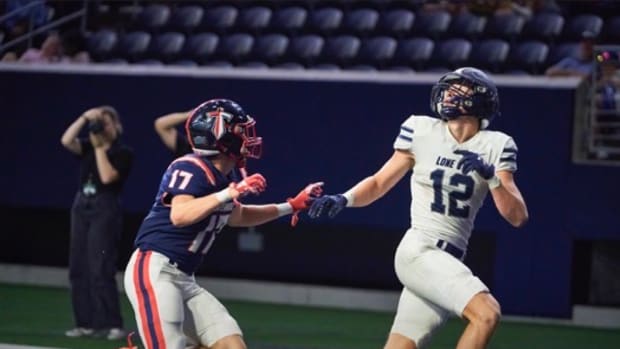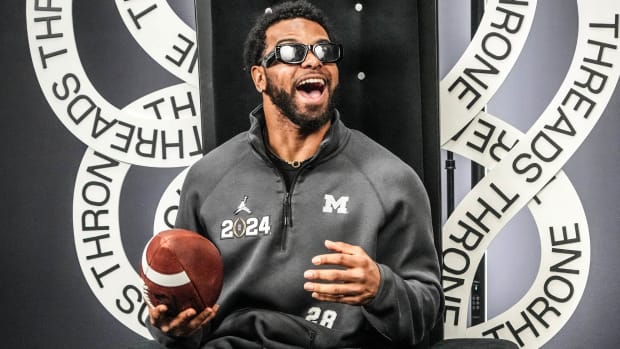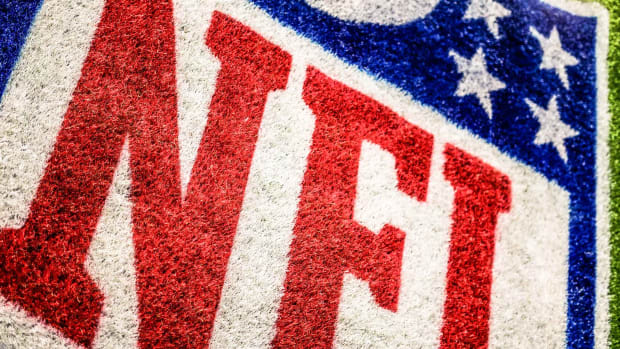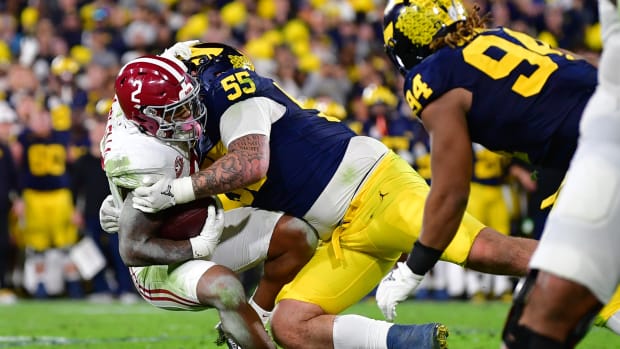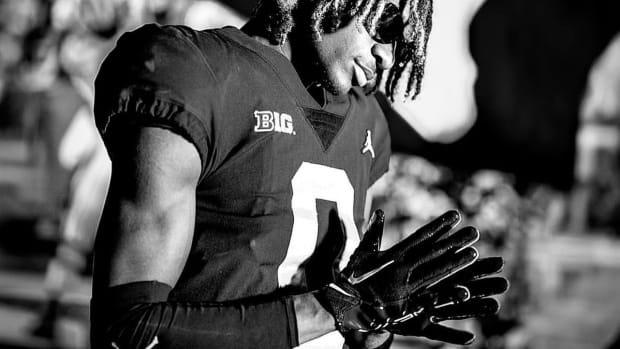Are Virtual Reality Tickets The Answer For Watching Michigan Games This Fall?
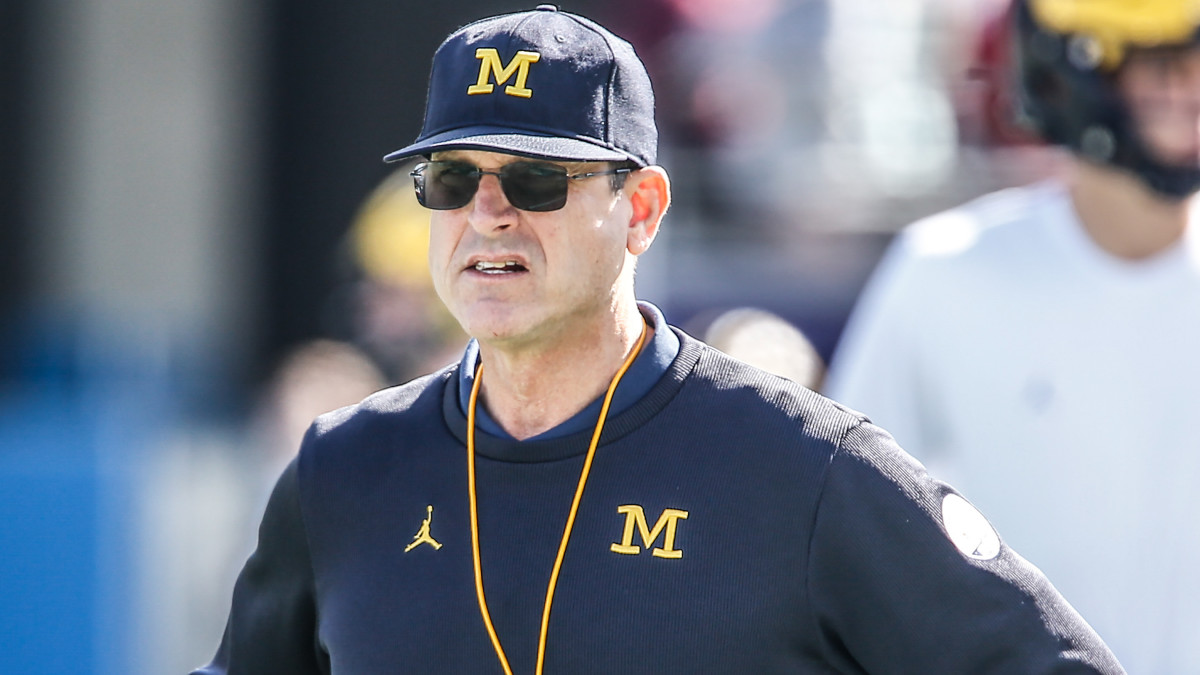
With the college football world shut down for the time being, Michigan head coach Jim Harbaugh made an appearance on ESPN’s program Get Up earlier today to discuss the coronavirus quarantine’s impact on his football team.
As is the case across America, Harbaugh has had to err on the side of innovation to help keep his team together and engaged during this time period, and he shared several methods that Michigan has employed.
“With virtual workouts, virtual meetings and staying in touch by phone, so that’s how we’ve been doing it, so we’ll see,” Harbaugh said. “Hopefully we can get the guys back together and get them working out. As soon as the gyms open up, you feel like you can get them back into the facilities, at least on a voluntary basis. And I sure do miss them. I can tell you that.”
The conversation soon shifted to what a college football season would look like in the aftermath of the coronavirus. According to Harbaugh, the team is proceeding as if the season will play out as scheduled while acknowledging that the in-game experience may be a bit unique to this season.
“With the practices of staying safe and can you get an entire team together— coaches, players, trainers, strength staff, etcetera— that cannot have symptoms or not test positive and then play football,” Harbaugh asked. “Can you have a game where both sides, both teams are tested— coaches, officials, trainers, everybody involved? If you don’t test positive and you don’t have it, can you still play the game? I think that is the question on everyone’s mind.”
One major question mark surrounding this discussion is what sense of involvement fans will have during the season. With the implementation of social distancing, it is reasonable to consider the notion that the season may be played without fans in stadiums— or with considerably less fans in attendance.
And while Harbaugh is leaning on innovation during this time period, it may be time that the University of Michigan operates in a similar direction.
Without 100,000 fans packing into Michigan Stadium each Saturday, the Wolverines stand to lose a considerable amount of money, especially when considering the lost revenue from concession purchases. To mitigate that impact while keeping everybody safe, U-M should explore the possibility of engineering a system that would allow for fans to watch the football games using virtual reality to simulate the in-stadium experience.
At the moment, several companies currently allow for fans to purchase a ticket to a specific seat in an arena or stadium, and the fans can watch the game from the comfort of their own home. This would cover multiple bases as the fans would be in a safe environment while also contributing money to the football program in a unique fashion that would show Michigan as one of the more forward-thinking schools in the nation.
The real life application of this idea would come at the expense of fans in the stadium— or at least as many fans as normal, but much of the current discussion revolves around removing fans from the equation entirely. This possibility would hypothetically allow for football to proceed as scheduled this season while also helping Michigan out from a financial perspective.
Given the possibilities that Harbaugh is currently considering, it seems to be an outcome that would be mutually beneficial for all parties involved.
“You can test both teams,” Harbaugh said. “You can test the officials and everybody. Can you test 100,000 fans coming into a stadium? Probably not. Probably not without a vaccine you probably couldn’t do that. So to answer your question, heck yeah I’d be comfortable coaching a game without any fans. If the choice were play in front of no fans or not play, then I would choose play in front of no fans. And I think darn near every guy on our team, that is the way they feel about it.”
If Michigan football is forced to play home games without fans inside the stadium, maybe the school could allow for fans to experience the game as if they were inside Michigan Stadium until college football returns to normal.
And once college football fans are allowed back on campus each Saturday, who is to say that the school cannot continue to sell tickets in this fashion to help recoup revenue? Michigan football could be the first school to implement a virtual reality viewing option for fans that have difficulty making it to Ann Arbor for games, potentially opening up the possibility for far more than 110,000 fans to watch a game each week.
Amid such uncertain times, it is an option that is worth exploring, and one that Harbaugh may be open to considering his comfortable position on playing football games this fall without fans.
What do you think would be a reasonable solution in terms of playing football this fall? How can Michigan orchestrate a scenario that is not only safe for the fans, coaches and players while also pulling in money at the same time? Let us know!

